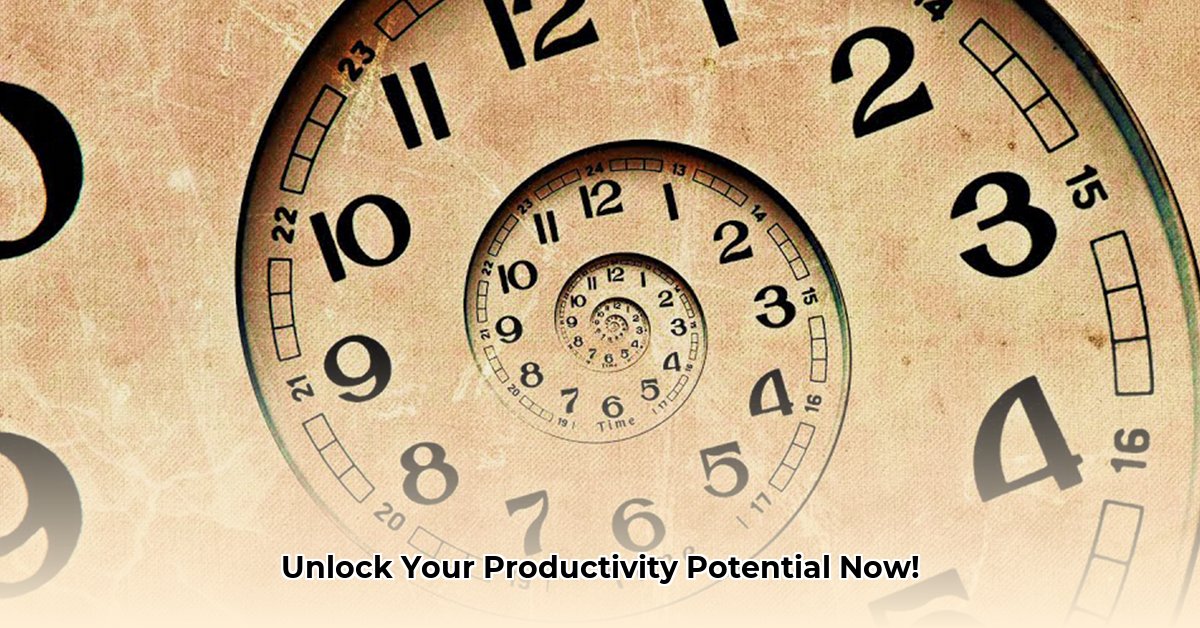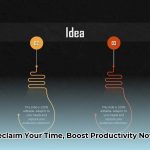Do you often feel overwhelmed by your to-do list, wishing you had more hours in the day? You’re not alone. Effective time management is a crucial skill for success in all areas of life. This comprehensive guide provides a variety of self-assessment tools and actionable strategies to help you understand your current time management habits and develop a personalized plan to boost your productivity and regain control of your time.
Discover Your Time Management Profile: A Multi-Faceted Self-Assessment
This multi-faceted self-assessment helps you gain a comprehensive understanding of your current time management habits. Answer the following questions honestly to identify your strengths and weaknesses and unlock your full productivity potential.
-
Planning & Organization: How often do you plan your day or week in advance, ensuring you stay organized and focused on your priorities?
- a) Rarely – I prefer to approach the day spontaneously without a structured plan.
- b) Sometimes – I create a basic to-do list, but I often deviate from it due to unforeseen circumstances.
- c) Most of the time – I develop a detailed plan and generally stick to it, adapting as needed.
- d) Always – I meticulously plan my day and adhere to it closely, ensuring optimal efficiency and proactively addressing potential disruptions.
-
Prioritization & Decision-Making: How do you typically decide which tasks to tackle first, ensuring you focus on what truly matters and avoid getting bogged down in less important activities?
- a) Randomly – I address tasks as they arise without a specific order or consideration of their importance.
- b) I try to prioritize – but distractions and urgent requests often lead me astray from my intended focus.
- c) I use a to-do list – but feel overwhelmed, struggling to manage the volume of tasks and identify the most critical items.
- d) I use a strategic system – such as the Eisenhower Matrix (urgent/important) or Pareto Principle (80/20 rule), to prioritize tasks effectively and allocate my time accordingly.
-
Time Estimation & Realistic Scheduling: How accurate are you at estimating the time required to complete tasks, ensuring realistic scheduling and preventing overcommitment?
- a) Consistently underestimate – I consistently underestimate the time needed, leading to missed deadlines and increased stress.
- b) Usually off – I need to improve my time estimations for better planning and more realistic expectations.
- c) Pretty good – I generally provide accurate time estimates, but occasional unforeseen delays can disrupt my schedule.
- d) Excellent – My time estimates are highly accurate, leading to efficient scheduling and a reduced risk of overcommitment.
-
Interruption Management & Focus: How do you typically handle interruptions during your work, maintaining focus and productivity despite distractions?
- a) Overwhelmed – Interruptions completely throw me off track, hindering my ability to regain focus and complete my work.
- b) Sidetracked – I get sidetracked easily and struggle to return to my original task promptly, resulting in wasted time and decreased efficiency.
- c) Manageable – I try to minimize interruptions, but some still manage to disrupt my workflow, requiring effort to regain focus.
- d) Masterful – I’m a master at minimizing interruptions, employing strategies such as time blocking and noise cancellation to protect my focus time and maintain optimal productivity.
-
Work-Life Balance & Well-being: How balanced is your current lifestyle, effectively integrating work, personal life, and leisure activities while prioritizing your well-being?
- a) Totally unbalanced – I constantly feel stressed and overwhelmed by conflicting demands, neglecting my personal life and well-being.
- b) Somewhat unbalanced – I recognize the need to improve the balance in my life, but struggle to find effective strategies to achieve it.
- c) Mostly balanced – I strive to maintain a balance, but there’s still room for improvement in effectively managing my commitments and prioritizing self-care.
- d) Very balanced – I feel in control, effectively balancing my various commitments, prioritizing self-care, and maintaining a healthy work-life balance.
Deciphering Your Score: Understanding Your Time Management Strengths and Weaknesses
Tally your score based on the following values: (a) = 1 point, (b) = 2 points, (c) = 3 points, and (d) = 4 points.
- 16-20: Time Management Virtuoso You possess exceptional time management skills and consistently demonstrate a high level of productivity and control. Keep up the outstanding work! Consider sharing your expertise by mentoring others or leading workshops on time management strategies.
- 11-15: Progressing Steadily You demonstrate solid time management habits with the potential for enhancement. Focus on refining specific areas identified in this assessment to maximize your efficiency and achieve even greater success.
- 5-10: Opportunity for Transformation This is a great opportunity to learn new techniques and implement positive changes to significantly improve your time management skills. Developing effective strategies is achievable with dedication and a willingness to experiment.
Actionable Strategies for Time Management Enhancement: A Personalized Plan
Based on your score, here’s a personalized plan to optimize your time management skills and achieve your goals:
If you scored 11-15:
- Prioritization Mastery: Delve deeper into prioritization techniques beyond the basics. Explore the Pareto Principle (80/20 rule) to identify the 20% of tasks that yield 80% of the results. Focus your energy on those high-impact activities.
- Time Estimation Refinement: Go beyond tracking your time and analyze the reasons behind inaccurate estimates. Identify common factors that lead to underestimation, such as unexpected delays or lack of clarity on task requirements. Develop strategies to mitigate these factors.
- Interruption Minimization: Implement a multi-layered approach to managing interruptions. In addition to scheduling focus blocks and turning off notifications, proactively communicate your need for uninterrupted time to colleagues and family members. Consider using noise-canceling headphones or creating a dedicated workspace to further minimize distractions.
If you scored 5-10:
- Goal Setting Foundations: Start by defining your long-term goals and breaking them down into smaller, manageable milestones. Ensure your goals are SMART: Specific, Measurable, Achievable, Relevant, and Time-bound.
- Pomodoro Technique Implementation: Experiment with different Pomodoro durations to find what works best for you. Some individuals find that 25-minute intervals are too short, while others prefer shorter bursts of focus. Adjust the intervals and break times to optimize your concentration and prevent burnout.
- Scheduling System Adoption: Explore various scheduling tools and techniques to find a system that aligns with your personality and workflow. Experiment with digital calendars, paper planners, or task management apps to discover what helps you stay organized and on track.
- Technology Integration: Embrace technology to streamline your time management processes. Explore time-tracking apps, to-do list managers, and calendar integrations to automate tasks, set reminders, and gain insights into your time usage.
- Mindfulness Practice: Reducing stress and increasing focus with mindfulness and meditation.
- Delegation strategies: Identifying tasks that can be delegated.
The Perpetual Journey of Time Management Improvement: Continuous Growth and Adaptation
Time management is not a destination but an ongoing journey. Regularly reflect on your progress, experiment with different techniques, and adapt your approach as needed. Embrace a growth mindset, viewing setbacks as opportunities for learning and improvement. The goal is to create a personalized system that aligns with your life, emphasizing consistency and positive self-assessment.
Demystifying Time Management Self-Assessment Tools: Choosing the Right Fit for Your Needs
Ready to boost your productivity? Let’s explore how to effectively assess your time management skills using a variety of tools. This isn’t about finding the perfect tool but understanding how to choose the right one based on your individual needs.
Gauging Your Time Management Baseline: A Quick Diagnostic
Before exploring how to compare different time management self-assessment tools, let’s establish your current status. Answer these questions honestly:
- Do you consistently set clear, achievable goals that align with your values and priorities? (Yes/No)
- Do you prioritize tasks effectively, focusing on high-impact activities and delegating or eliminating less important items? (Yes/No)
- Do you use a planner or scheduling system to stay organized and track your commitments? (Yes/No)
- Do you often feel overwhelmed or stressed by your workload, struggling to manage deadlines and competing demands? (Yes/No)
- Do you proactively schedule breaks and downtime for rejuvenation, preventing burnout and maintaining optimal energy levels? (Yes/No)
- Do you delegate tasks when possible to distribute workload and empower others? (Yes/No)
- Do you track your time spent on diverse activities for better analysis, identifying time-wasting habits and optimizing your schedule? (Yes/No)
- Do you regularly review and adjust your schedule to maintain efficiency, adapting to changing priorities and unforeseen circumstances? (Yes/No)
- Do you struggle with procrastination, delaying important tasks and experiencing last-minute stress? (Yes/No)
- Do you feel you have a good work-life balance, effectively integrating your professional and personal life while prioritizing your well-being? (Yes/No)
Scoring: Give yourself one point for each “Yes” answer.
- 8-10 points: Excellent time management skills! You demonstrate a high level of efficiency, organization, and control.
- 5-7 points: Good foundation, but room for improvement. You possess solid time management skills, but targeted adjustments could significantly enhance your productivity.
- 0-4 points: Time management needs significant attention. You may be struggling to manage your time effectively, experiencing stress, and feeling overwhelmed.
Interpreting Your Score & Selecting Suitable Tools: A Personalized Approach
Your score provides a valuable starting point. Let’s discuss how to compare different time management self-assessment tools based on your specific needs and goals.
If you scored 8-10: You’re already doing great. Consider using a tool to refine existing strategies, exploring advanced techniques like time blocking, the Eisenhower Matrix, or the Getting Things Done (GTD) methodology. A time-tracking app could reveal hidden time sinks and identify opportunities for further optimization.
If you scored 5-7: You have a solid foundation; adjusting your approach could boost your efficiency. A self-assessment quiz focused on prioritization, planning, or delegation might identify specific weaknesses. Explore tools offering personalized recommendations, actionable strategies, and progress tracking features.
If you scored 0-4: You need a more comprehensive approach. Start with a detailed self-assessment tool that explores various aspects of time management, providing detailed feedback and customized action plans to set goals, prioritize tasks, build a more efficient schedule, and overcome procrastination. Consider seeking guidance from a time management coach or consultant.
Comparison Factors for Self-Assessment Tools: Key Considerations
When choosing a tool, carefully consider these factors:
| Feature | Considerations |
|---|---|
| Format | Quiz, questionnaire, worksheet, 360-degree feedback, interactive assessment |
| Depth | Brief overview, in-depth analysis, comprehensive assessment with detailed reports |
| Focus | General time management, specific areas (e.g., procrastination, prioritization, planning, delegation, meeting management) |
| Personalization | Generic advice, personalized recommendations and action plans tailored to your individual needs and goals |
| Ease of Use | Simple and intuitive interface, complex and detailed features, mobile accessibility |
| Cost | Free, subscription-based, one-time purchase |
| Reporting | Basic score, detailed analysis, visual reports, progress tracking |
| Integration | Integration with other productivity tools (e.g., calendars, task managers) |
| Privacy | Data security, privacy policy |
Regular self-assessments help track your progress and refine your strategies. Time management is a journey, not a destination!
Key Takeaways:
- Assess your time management skills regularly to identify areas for improvement.
- Choose self-assessment tools that align with your specific needs, goals, and skill level.
- Focus on personalized feedback, actionable strategies, and progress tracking features.
- Implement chosen strategies consistently and track your progress over time.
- Apply a variety of time management techniques to find what works best for you.
- Continuously refine your approach based on your experience and changing priorities.
Mastering Time Management: A Personalized Assessment for Professionals: Taking Control of Your Workday
Ready to enhance your productivity and take control of your professional life? Let’s assess your time management skills with this insightful self-assessment designed specifically for professionals.
Recognizing Your Time Management Patterns: A Professional Perspective
Take a moment to reflect on your typical workday. Are you consistently on schedule, or do you often find yourself scrambling to meet deadlines? This quiz is designed to provide valuable insights into your time management habits within a professional context.
The Proactive Time Management Quiz for Professionals: An Honest Evaluation
Answer the following questions honestly! This isn’t a pass/fail test; it’s an opportunity for self-discovery and professional growth.
-
Planning Habits: How frequently do you create a daily or weekly to-do list that aligns with your professional goals?
- Never (I prefer to react to situations as they arise)
- Sometimes (I create a list occasionally, but don’t always follow it)
- Often (I create a list regularly and try to adhere to it)
- Always (I meticulously plan my day/week, prioritizing tasks based on strategic importance)
-
Prioritization Proficiency: How effectively do you prioritize tasks based on urgency and importance, ensuring key professional tasks are addressed promptly and efficiently?
- Poorly (I struggle to differentiate between urgent and important tasks)
- Fairly well (I understand the difference, but often get sidetracked by less important items)
- Well (I can generally prioritize effectively, but occasional distractions can disrupt my focus)
- Very well (I consistently prioritize tasks strategically, ensuring critical deadlines are met)
-
Scheduling Adherence: How well do you stick to your planned schedule, maintaining focus and productivity throughout the workday?
- Poorly (I rarely stick to my schedule, often getting derailed by unexpected requests)
- Fairly well (I try to stick to my schedule, but interruptions and urgent requests often interfere)
- Well (I generally adhere to my schedule, but occasional deviations are necessary)
- Very well (I consistently stick to my schedule, proactively managing potential disruptions)
-
Procrastination Tendencies: How often do you find yourself procrastinating on important professional tasks, especially those that are challenging or unpleasant?
- Very often (I frequently delay important tasks, leading to last-minute stress)
- Often (I often procrastinate, but manage to complete tasks before deadlines)
- Sometimes (I occasionally procrastinate, but generally manage to stay on track)
- Rarely (I rarely procrastinate, tackling tasks promptly and efficiently)
-
Interruption Management: How effectively do you manage interruptions and distractions in the workplace, mitigating their impact on your work and maintaining focus?
- Poorly (Interruptions completely derail my focus and productivity)
- Fairly well (I try to minimize interruptions, but often struggle to regain focus)
- Well (I can generally manage interruptions effectively, but some still disrupt my workflow)
- Very well (I proactively minimize interruptions, employing strategies to protect my focus time)
-
Goal-Setting Clarity: How clearly defined are your short-term and long-term professional goals, providing a clear direction for your efforts and career development?
- Not at all (My goals are vague and undefined)
- Somewhat (I have some general goals, but they lack specificity and clarity)
- Clearly (My goals are well-defined and aligned with my career aspirations)
- Very clearly (My goals are specific, measurable, achievable, relevant, and time-bound)
-
Delegation Skills: Do you effectively delegate tasks when possible, distributing responsibilities to qualified colleagues and empowering them to contribute effectively?
- Never (I rarely delegate tasks, preferring to handle everything myself)
- Rarely (I delegate tasks occasionally, but often hesitate to relinquish control)
- Sometimes (I delegate tasks when appropriate, but could delegate more effectively)
- Often (I delegate tasks effectively, entrusting responsibilities to capable colleagues)
-
Review & Adjustment Process: Do you regularly review your schedule and adjust it based on your progress, ensuring continuous improvement and adaptability?
- Never (I rarely review my schedule, sticking to my initial plan regardless of circumstances)
- Rarely (I review my schedule occasionally, but don’t always make necessary adjustments)
- Sometimes (I review my schedule regularly, but could be more proactive in making adjustments)
- Often (I regularly review my schedule, making necessary adjustments to optimize efficiency)
-
Technology Integration: How effectively do you use technology to manage your time, employing tools like calendars, productivity apps, and project management software to streamline your workflow?
- Ineffectively (I struggle to use technology effectively for time management)
- Somewhat effectively (I use some technology tools, but could improve my proficiency)
- Effectively (I use technology tools to manage my time effectively)
- Very Effectively (I leverage technology to optimize my time management and enhance productivity)
-
Stress Perception: How stressed do you feel regarding your workload and time management responsibilities in your professional life?
- Very stressed (I feel constantly overwhelmed and stressed by my workload)
- Moderately stressed (I experience moderate stress levels
- Achieve Consulting Work-Life Balance: A Practical Guide - December 7, 2025
- Achieve Anesthesiology Work-Life Balance: Your Guide - December 4, 2025
- Unlock Young Doctors’ Work-Life Balance: Actionable Strategies Now - December 2, 2025















